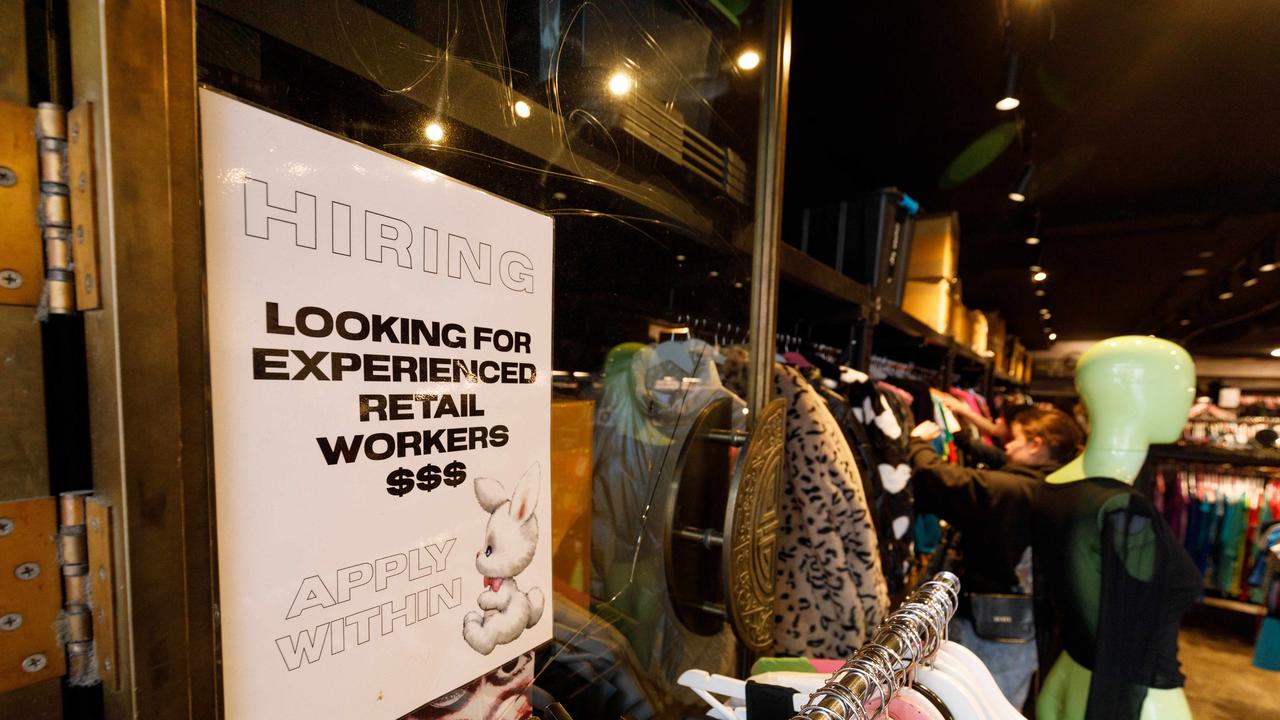New study reveals work perks Aussie jobseekers place the most value on
A third of Aussie jobseekers and workers have revealed a surprising “must-have” for any future role they might apply for.
More than a third of Aussie jobseekers consider time in lieu as compensation for overtime worked and additional leave as “must-haves” for any role they might apply for.
The surprising detail is revealed in new data collected in SEEK’s Laws of Attraction (LOA) portal, surveying more than 14,700 jobseekers in the current market who are over 18 and looking to change jobs in the next two years.
Of those surveyed, respondents said work-life balance was the most important quality in their consideration of applying for a new job, giving it a 15.4 per cent importance score.
It was followed by the salary and compensation on offer (13.9 per cent), working environment (11.5 per cent), the management and quality of management at any new role (10.1 per cent) and what career and development opportunities could be explored (9.4 per cent).

“While work-life balance continues to be the top priority for the majority of job seekers, it is becoming increasingly rivalled by salary and compensation, which has stayed strong in the face of the cost of living crisis,” the study states.
“Work-life balance has gradually declined in importance … in favour of other drivers such as career development opportunities.
“This shows that what Australian workers want is increasingly becoming more complex and diversified, and reflective of shifting priorities as five generations coexist in the workforce.”
Career development rose to fifth place from seventh at the height of the Covid-19 pandemic – a testament to “workers going after progression and pay rises, as well the next generation joining the workforce in full strength”, the study continued.
A total of 36 per cent of Aussies surveyed said they still considered flexibility in working from home as a “must-have” when considering a job opportunity.
Meanwhile, 30 per cent said time in lieu “as compensation for overtime/additional hours worked” and additional leave were also must-haves.

Financial compensation for overtime ranked higher for female workers (59 per cent considering it a must have) and gender diverse/self described people (65 per cent), compared to 51 per cent of men.
In addition, lower income workers earning under $52,000 per annum also prioritised paid overtime compared to other income brackets.
Of those, 63 per cent said it was a must have while – only 37 per cent of people earning over $104,000 said it was necessary.
Workers in NSW and Victoria were some of the biggest work from home advocates in the country – with 29 and 31 per cent respectively saying it was absolutely necessary.
Comparatively, only 23 per cent of Queenslanders shared the same opinion.
Analysing the data, the study’s authors found there was an “increasingly complex balance” of cost of living pressures, a new generation of ambitious jobseekers and a continued desire for flexibility coming into the modern workforce.
They found Gen Z jobseekers placed “less importance on work from home arrangements when it comes to work-life balance, and instead prioritise offerings that give them greater control over their time”.
TOP 5 DRIVERS OF ATTRACTION FOR JOBSEEKERS:
- Work-life balance (15.4 per cent importance score)
- Salary & compensation (13.9 per cent)
- Working environment (11.5 per cent)
- Management & management quality (10.1 per cent)
- Career/development opportunities (9.4 per cent)
WORK-LIFE BALANCE DRIVERS FOR JOBSEEKERS:
- Time in lieu as compensation for over time / additional hours worked – 30 per cent of Australian workers consider a must-have
- Additional leave – 30 per cent consider a must-have
- Flexible working hours – 29 per cent consider a must-have
- Ability to work part time – 27 per cent consider a must-have
- Ability to work from home / remote working – 26 per cent consider a must-have




